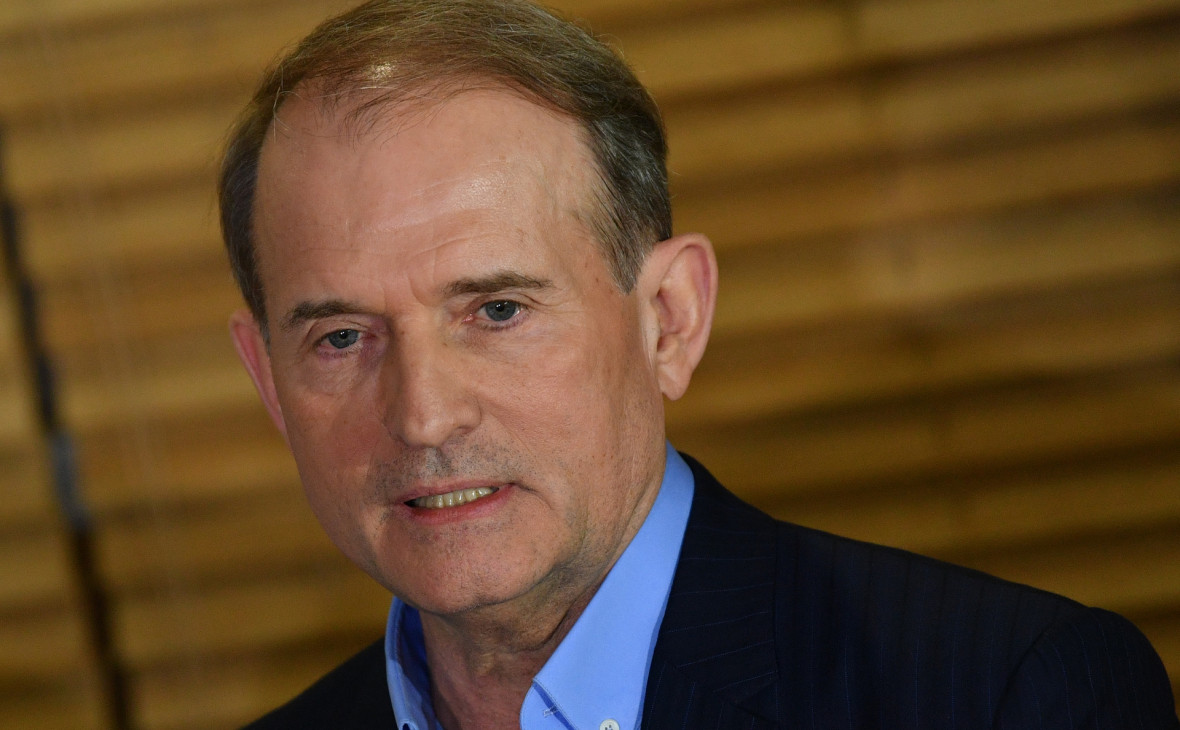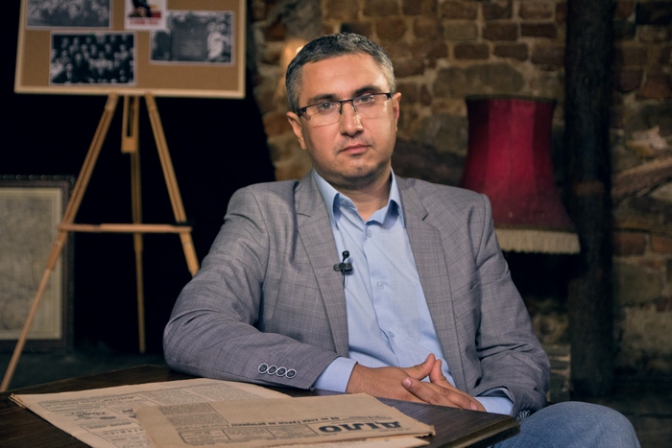“unreliable" and violates “Medvedchuk's personal non-property rights to respect for honor and dignity, inviolability of business reputation”
- the court decision states.
The court hearings that lasted for more than a year finally ended with a decision by the judge Maryna Zastavnenko, suspected of having ties to Russian-backed "DNR" separatists. The court also banned the dissemination of book sections in the media, on radio, television, and on the Internet. This is probably the first case of such a direct attempt at censorship during Ukraine’s independence.
However, the court decision failed, since the prohibited chapter was immediately published on the internet by various outlets, in protest to censorship, while the remaining paper copies of the book were sold out within an hour. This is now known as the “Medvedchuk Effect.”
What is the banned book about
In 2019, the publisher Vivat published a new book by the Ukrainian historian Vakhtang Kipiani, The Case of Vasyl Stus
. The book is a document-based study of Soviet repression and court hearings against famous Ukrainian poet Vasyl Stus (1938-1985). In particular, the book dishonored a contemporary Ukrainian oligarch, Putin’s crony, and main pro-Russian politician in Ukraine Viktor Medvedchuk.

In 1980, during the final court hearings in the case against Stus, Medvedchuk served as Stus’ attorney. However, he did nothing to defend Stus and even recognized his guilt. Medvedchuk also served as an attorney in cases against other Ukrainian dissidents, doing as little as in the Stus case.

In the case against dissident Mykola Kuntsevych, not only did Medvedchuk fail to defend him, but he went so far as to request that the prosecutor add the previous term of conviction to the current one, making the full term 21 months longer. During the dissident trials, only lawyers affiliated with the KGB were assigned the most important political cases.
- Read also: Putin’s Number One man in Ukraine sues media to hide Soviet past
- Ex KGB agent who repressed Ukrainian intellectuals among country’s most influential persons. How come?
Stus was convicted of anti-Soviet views expressed in his poems and initially sentenced to eight years imprisonment in 1972 and then to 10 years of imprisonment in 1980. During the second term he died in murky circumstances.
What is unique about the court decision
Although there have been quite a lot of cases of assaults and threats against journalists, no attempts at censorship that contained a total ban on specific information have occurred until now in Ukraine. There are bans on certain websites as well as on commercial book imports from Russia that deny Ukrainian independence. However, the aim of these sanctions is to limit the available means (Russian platforms, Russian publishers) for propaganda but not to ban the specific content.
Ukrainian Constitution guarantees freedom of expression. But the court decision in the case against Kipiani and Vivat publishing house banned the information per se and any form of its distribution, as well as obliged that the book be censored.
From the legal point of view, there is little for Kipiani to worry about. He still has the court of appeal and the European Court of Human Rights in the event that law enforcement agencies attempt to conduct censorship in practice. Yet symbolically, Medvedchuk’s victory in court shows Ukraine has still to fight for its historical memory even inside the country, let alone internationally.

A Facebook storm started after the court decision, with many politicians and opinion leaders publishing pictures of the book and their comments. In particular, Ukrainian writers and members of the PEN club expressed their support for Kipiani.
“Well, finally, my generation keeps banned books at home, - wrote famous contemporary Ukrainian poet Kateryna Kalytko. - This whole situation terribly disturbs me for many reasons. First of all, because it concerns fundamental things for me: freedom of speech, historical justice and Vasyl Stus, from whom I take an example poetically, humanly and civilly all my life. And, of course, it's very good and even touching that people have bought the entire edition and continue to create demand for the book... Terrible, however, is the other thing. Even with all my pessimism of the last year, I didn't think we would get to this... Where to leave the discouragement that you live in a country where the court satisfies the claim of a long-time enemy of this country, and citizens deliberately and consistently shoot themselves in the foot?”
Court judge suspected of ties with Donbas separatists
The presiding judge Maryna Zastavnenko used to be a judge in the Donbas town Makiyivka. After the occupation of Donbas in 2014, she moved to Kyiv. However, her property remained in Donbas which she continued to visit regularly. It is unlikely she could visit Donbas without security guarantees from the Russian-backed separatists. That was mentioned in the security service of Ukraine (SBU) report in 2016. The SBU addressed the High Qualification Commission of Judges of Ukraine to dismiss Maryna Zastavnenko, yet the Commission refused.
Streisand Effect becomes Medvedchuk Effect
The court decision led to the opposite consequence than had been expected. The book became highly popular and the banned chapter was distributed additionally in social networks and various outlets. After the court verdict, the remaining copies of the book were sold out within an hour and a new print run announced.
Within an hour, the book The Case of Vasily Stus was sold out again. All warehouses are empty. Greetings to Putin's crony. But there will be a new edition again! - Vakhtang Kipiani wrote on Facebook. - Therefore, I advise you to make the order on a site of the Vivat publishing house or write to me via Messenger. These orders will be administered first. We will appeal this disgraceful decision by judge Zastavenko. Her voice was trembling – It was probably shame.
So far, 20,000 copies of the book have been printed and 15,000 more are already set for printing. Also, in protest at the court decision, one of Ukraine’s largest media outlets, Ukrainska Pravda, published the prohibited section of the book while Liga.net published a summary of the book. For some hours, while it was not sure whether new copies would be printed, people were selling used copies of the book on the internet for 5-10 times more than the normal market price.

Netizens also flouted Medvedchuk. Someone renamed the article on the Streisand Effect in Ukrainian Wikipedia to Medvedchuk’s effect, and the expression became viral.
Governmental officials also reacted to the court decision. Ukraine’s Minister of Culture Oleksandr Tkachenko
stated that he would purchase part of the books for national libraries at his own expense. “Shortly, the Ministry of Culture recommends reading the book”, - Tkachenko wrote.
The presidential office also wrote that the court decision is “strange”, no censorship is allowed in Ukraine. It welcomed independent historical investigations.
Read also:
- Critics of Ukrainian President Zelenskyy face criminal charges
- Former KGB agent who repressed Ukrainian intellectuals among country’s most influential persons. How come?
- Putin crony Medvedchuk gains hold of Ukrainian TV channel ZIK, causing uproar in media community
- How important were the Soviet dissidents: the case of Ukraine

